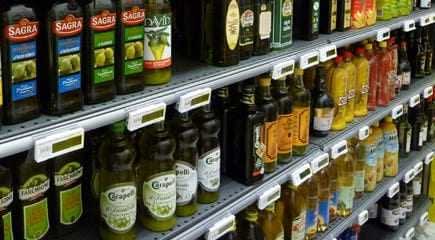
An international debate has begun in the olive oil sector on issues to do with labeling, such as whether to require ‘best before’ or ‘use by’ dates.
And one of the most pressing questions is what to do about often unavoidable slight changes affecting virgin olive oil’s organoleptic qualities — such as its taste and odor — after its packaging.
Virgin olive oil is a product that does not improve with age and producers run the risk that what was true about their oil at the time it was labeled is no longer entirely true by the time it reaches the checkout. Inadvertent non-compliance with labeling regulations can have serious complications not only for producers but the overall reputation of olive oil.
Government experts from France, Greece, Italy, Morocco, Portugal, Spain, Tunisia and Turkey, and also from the European Commission’s agriculture directorate, met at the International Olive Council’s Madrid headquarters on Thursday to begin discussions on these issues.
Also on the agenda was the differences in labeling laws in various jurisdictions, including variations from what the IOC trade standard says about labeling.
Many European producers would also like to see a relaxation of E.C. restrictions on the health claims that can be made on labels, envious of the more liberal rules in the United States.
An IOC spokeswoman said the meeting was an initial one designed to “touch base” and establish priorities. It sprang from priorities set for the IOC’s work in a meeting of the IOC’s Board of Members.








